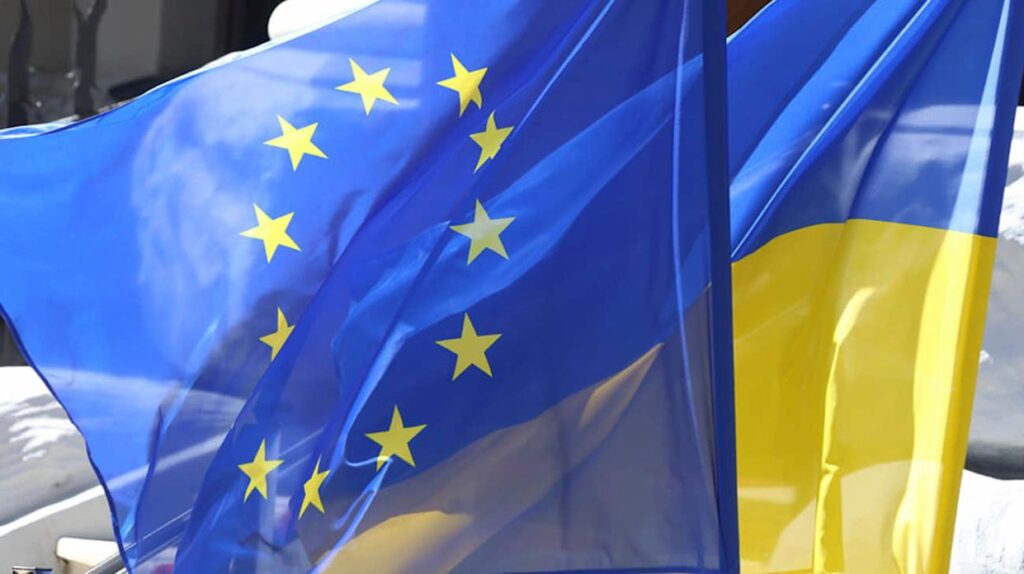European leaders supported plans to increase defense spending. They also committed to standing by Ukraine. These actions come as Donald Trump’s changed U.S. policies have upended the world.
The EU’s defense summit in Brussels happened because of fears that Russia might attack an EU country. Russia may feel emboldened by its war in Ukraine. Also, Europe can no longer be sure that the U.S. will come to its aid.
“Today we have shown that the European Union is rising to the challenge, building the Europe of defence and standing with Ukraine shoulder to shoulder,” Antonio Costa told reporters, chairman of the meeting.
EU leaders praised the European Commission’s proposals to offer fiscal flexibility on defense spending. The proposals also include jointly borrowing up to 150 billion euros ($160 billion) to lend to EU governments. They would spend this money on their militaries.
The leaders issued a joint statement, agreed to by all 27 member states. In it, they called on their ministers to urgently examine these proposals in detail.
“Europe must take up this challenge, this arms race. And it must win it,” said Polish Prime Minister Donald Tusk. He spoke at the special defense summit in Brussels.
“Europe as a whole is truly capable of winning any military, financial, economic confrontation with Russia – we are simply stronger,” Tusk said.
French President Emmanuel Macron spoke to French voters on Wednesday, stating that Russia was a threat to France and Europe. He said that all of this was just a first step.
“Whatever happens in Ukraine, we need to build autonomous defence capacities in Europe,” he said after the EU summit.
BACKING UKRAINE
The EU leaders voiced support for Ukraine. However, Hungary’s nationalist leader Viktor Orban did not agree to that statement. He is a Trump ally who also has ties with Moscow.
The 26 other EU leaders stressed that there can be no negotiations on Ukraine without Ukraine. The statement also vowed to continue giving Ukraine aid.
“We are here to defend Ukraine,” Costa said. He and European Commission Chief Ursula von der Leyen warmly welcomed Ukrainian President Volodymyr Zelenskiy to the summit. They were smiling broadly. This contrasted sharply with the clash between Trump and Zelenskiy in the Oval Office last week.
Decades of reliance on U.S. protection, divergences on funding, and questions about France’s nuclear deterrence for Europe showed the challenges. It would be difficult for the EU to fill the void left by Washington after it froze military aid to Ukraine.
Washington provided over 40% of military aid to Ukraine last year, according to NATO. Europe could not easily replace some of this aid. Some leaders still publicly hoped that Washington could be coaxed back into the fold.
“We must ensure, with cool and wise heads, that U.S. support is also guaranteed in the coming months and years, because Ukraine is also dependent on their support for its defence,” Germany’s outgoing Chancellor Olaf Scholz said.
Macron said that leaders backed Zelenskiy’s call. Zelenskiy asked them to support the idea of a truce between Russian and Ukrainian forces in the air and at sea. Zelenskiy told EU leaders that such a truce would be a chance to test Moscow’s will to end its three-year invasion.
Macron stated that France was open to discussing extending the protection offered by its nuclear arsenal to its European partners. This signaled the gravity of the moment.
The reactions were cautiously positive. Lithuania’s President Gitanas Nauseda said such a “nuclear umbrella would serve as really very serious deterrence toward Russia.” Poland said the idea was worth discussing. Some, like the Czechs, stressed the need to keep the U.S. involved.
Trump has stated that Europe must take more responsibility for its security. On Thursday he cast doubt on his willingness to defend Washington’s NATO allies. He said that he would not do so if they are not paying enough for their own defense.
His decision has deeply alarmed Europeans. He shifted from staunch U.S. support for Ukraine to a more conciliatory stance towards Moscow. They see Russia as the biggest threat.
The parties aiming to form Germany’s next government agreed to lift constitutional limits on borrowing to fund defense spending. This underlined the level of concern.
Elsewhere in Europe, Norway will more than double its financial pledge to Ukraine this year. The prime minister said they are also hiking their own defense spending.
Click here for more World news.


